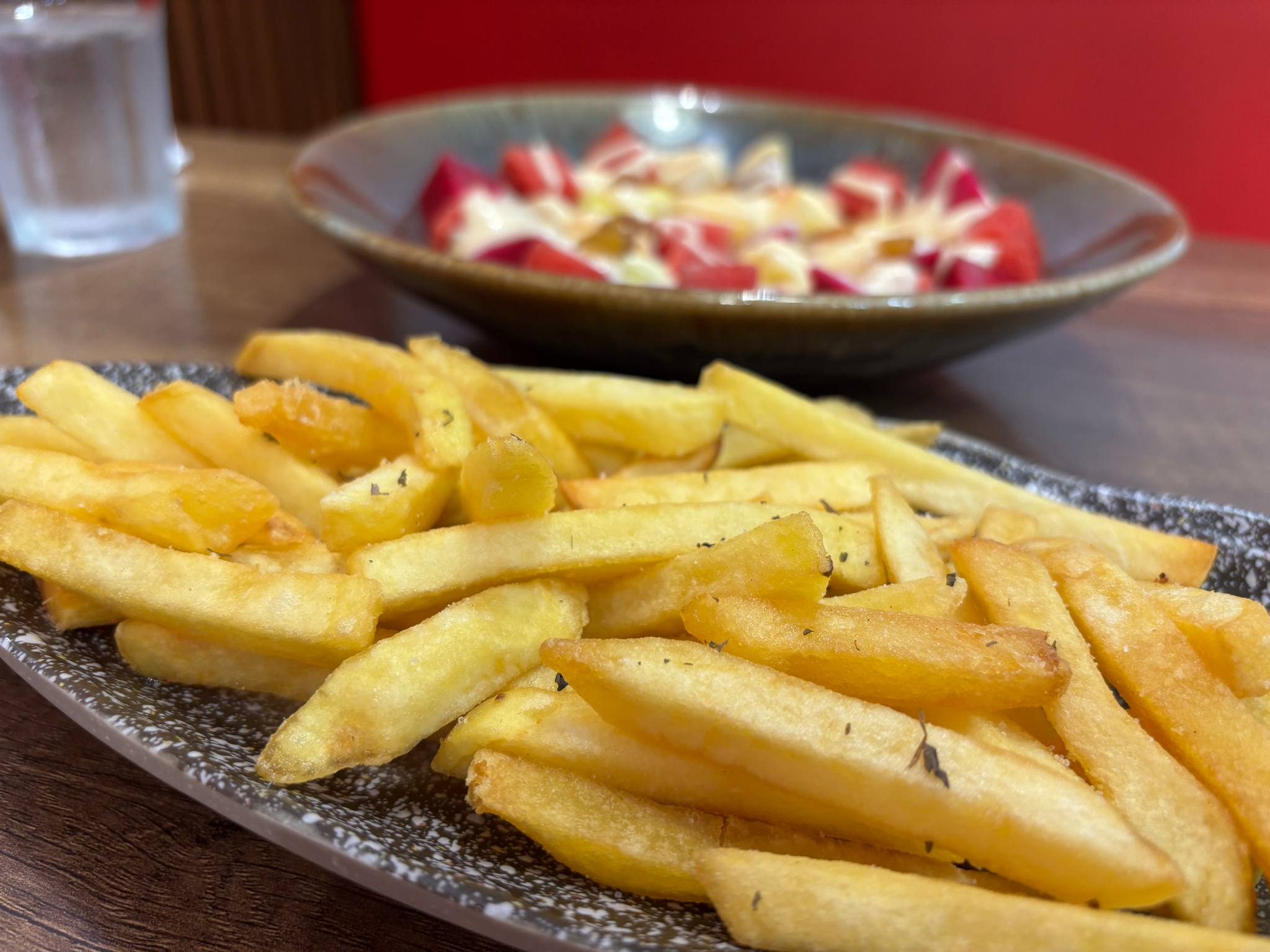Helicobacter pylori (H. pylori) is a spiral-shaped, gram-negative bacterium that lives in the protective mucus lining of the stomach. When the stomach is inflamed, the bacterium becomes more active.
Dr. Nguyen Thanh Huyen Van of the Endoscopy and Gastrointestinal Endoscopic Surgery Center at Tam Anh General Hospital, TP HCM, explains that spicy, sour, fatty foods, and alcohol can further stimulate acid production in the stomach. This can directly damage the already weakened lining, creating a favorable environment for H. pylori to thrive.
To help manage gastritis symptoms and support the effectiveness of medical treatment, individuals infected with H. pylori should avoid certain harmful foods.
Acidic foods like oranges, lemons, grapefruits, pineapples, tomatoes, vinegar, pickles, and kimchi can increase stomach acid levels, causing heartburn, acid reflux, and esophageal reflux.
Spicy and heavily seasoned foods such as chili peppers, pepper, mustard, and curry can irritate the stomach lining, increasing acid secretion and creating a burning sensation. They increase the risk of stomach ulcers and provide a conducive environment for H. pylori growth.
Fried and stir-fried foods, high in fat, slow down digestion and cause food to stagnate in the intestines. Regular consumption of these foods can lead to bloating, gas, indigestion, and strain on the stomach, hindering recovery.
 |
Fried foods easily cause bloating, which overloads the stomach. Photo: Chi Chi |
Fast food and processed foods like canned goods, cold cuts, sausages, instant noodles, snacks, and packaged potato chips are high in salt and unhealthy fats. The preservatives and chemical additives in these foods can irritate the stomach lining and worsen inflammation.
Sweets, candies, and carbonated drinks can cause CO₂ to build up in the stomach, leading to bloating. The stomach becomes distended and irritated by acid, affecting any existing ulcers.
Alcohol, beer, and other alcoholic beverages can erode the protective mucus layer of the stomach, causing ulcers to spread. Alcohol consumption increases the risk of stomach cancer and allows H. pylori to thrive, further aggravating ulcers.
 |
Dr. Huyen Van examining a patient. Photo: Tam Anh General Hospital |
Coffee, strong tea, and energy drinks contain caffeine, which stimulates stomach contractions and increases acid secretion, leading to inflammation. Caffeine can also relax the lower esophageal sphincter, causing acid reflux and heartburn.
Condensed milk, sweetened milk, and full-fat milk can create a favorable environment for H. pylori growth, increasing inflammation in the stomach lining. Full-fat milk contains a high level of fat, making the digestive process more demanding on the stomach. According to Dr. Van, patients can substitute yogurt, low-fat milk, or plant-based milk like soy milk, almond milk, or oat milk.
Uncontrolled fermented foods like shrimp paste, fish sauce, and unpasteurized bean paste may contain harmful bacteria or mold, increasing the risk of infection for people with H. pylori. Fermentation also produces lactic acid, which increases the acidity of food. Frequent consumption can lead to heartburn and abdominal discomfort.
Dr. Van advises people with H. pylori to eat meals on time, eat slowly, and chew thoroughly. They should also take medication as prescribed and not discontinue it when the pain subsides, as the bacteria may not be completely eradicated. Patients should seek medical attention if they experience severe or persistent abdominal pain, nausea, frequent vomiting, vomiting blood, black stools, fatigue, shortness of breath, or dizziness.
Thao Nhi
| Readers can submit questions about digestive diseases here for doctors to answer. |












